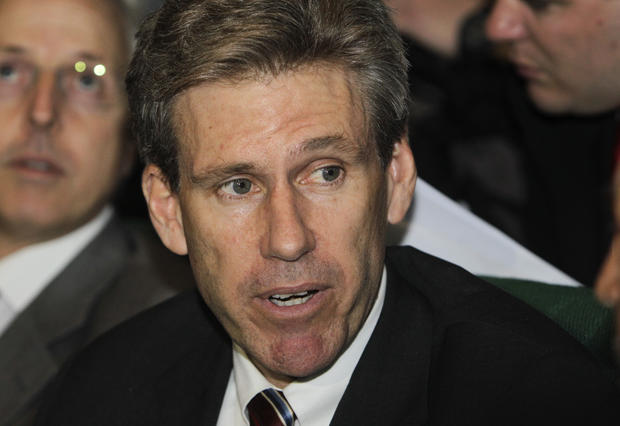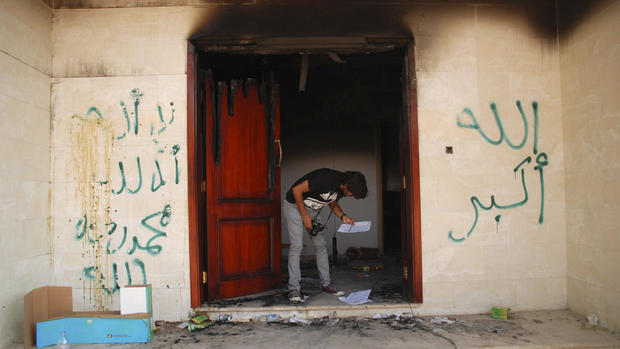Libya: We can't catch likely consulate attack culprits
(CBS News) BENGHAZI, Libya - The first reports from Libya last week said the attack on the U.S. consulate in Benghazi came during a protest over an anti-Islamic movie.
On Thursday, for the first time, the White House called the assault "a terrorist attack." Four Americans were killed, including the U.S. ambassador.
Secretary of State Hillary Clinton briefed members of Congress behind closed doors Thursday.
At a solemn memorial service, Libya's president paid his respects to Ambassador Christopher Stevens. U.S. Deputy Secretary of State William Burns had flown into the Libyan capital earlier under tight security.
Behind the scenes, an FBI team was preparing to fly to Benghazi to find out who carried out the attack.
The compound behind the walls of the consulate is the major crime scene, but any evidence left inside was badly contaminated by the looters and curious local people who flooded in after the attack.
Still, it should contribute valuable information to reconstruct what happened that night.
White House calls Libya assault "terrorist attack""Prime suspect" in Libya consulate attack dares gov't to "arrest me"
Libya moderates, militants plan dueling demos
Here's what eyewitnesses, officials, and Libyan commanders in charge that night have told CBS News: Sometime around 9:30 p.m. local time, about 70 armed men attacked the consulate's main gates with guns, grenades and RPGs, then stormed in, overwhelming local and American security.
With all four buildings on fire, the Libyan government ordered a local militia to the rescue.
The militia helped to ferry 31 Americans - and the body of Sean Smith - out of the back gate in armored cars to a house less than a mile away rented by the U.S. government. Shortly after that, it, too came under fierce attack.
What we still don't know is how - back at the compound - Ambassador Stevens got separated from his security detail, only to be found dead or dying just after midnight by the crowd.
Suspicion for the attack has focused on a powerful Islamist militia - Ansar al Sharia. It is so powerful that CBS News questions at the Interior Ministry made spokesman Izzedine Fezzen very nervous.
"We don't have enough power to catch them," Fezzen said.
Maybe not, but as far as the U.S. government is concerned, doing nothing is not an option.
The Bengahzai attorney general said the Libyans don't have the expertise or technology to do a proper investigation. He said he hopes the FBI will begin its work soon.


